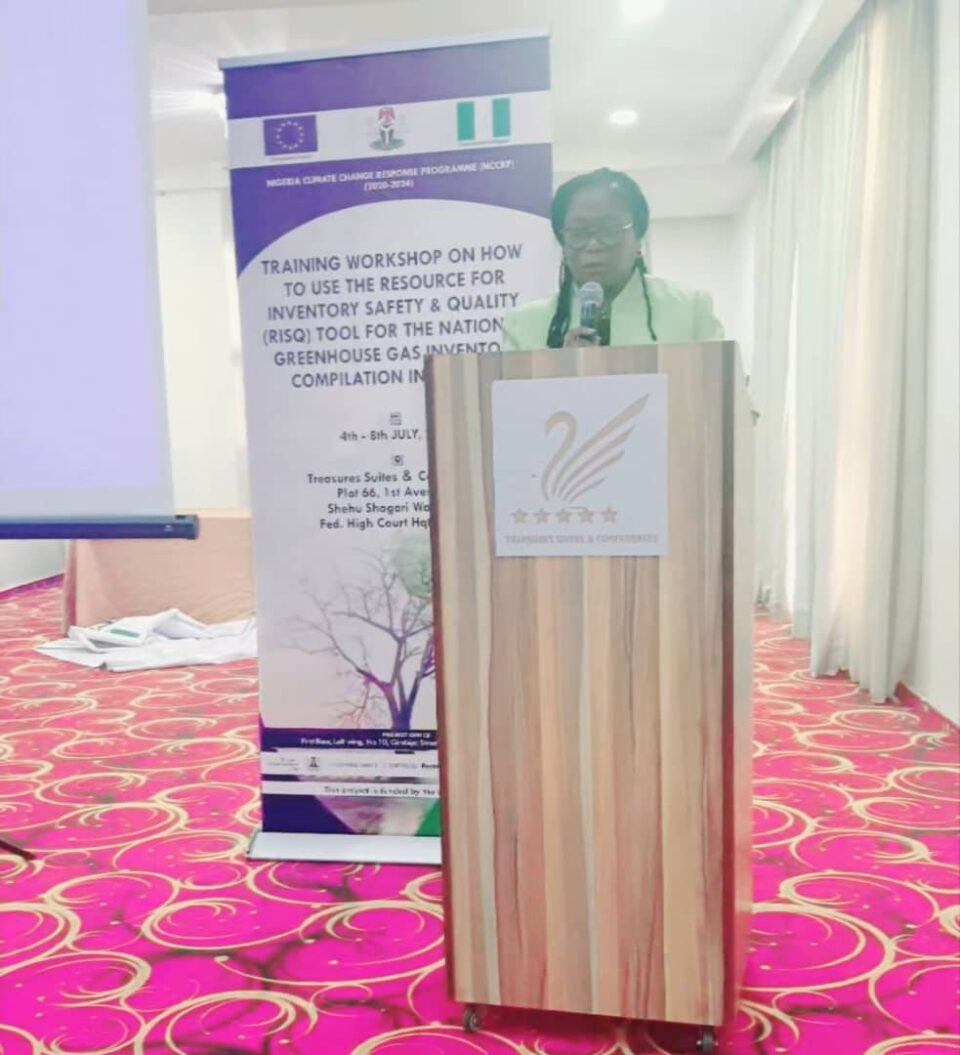Chuks Oyema-Aziken
The European Union (EU) through the provision of technical assistance for the implementation of the Nigerian Climate Change Response Programme (NCCRP) has trained some experts with the objective to establish the Monitoring, Reporting and Verification (MRV) framework and implement sustainable sectoral MRV systems for waste and energy (Task 1).
The one-week training in Abuja is to support the Federal Government of Nigeria’s efforts towards the fulfilment of its conditional NDC target.
Technical assistance for the implementation of the NCCRP is being provided by the Conseil Santé Consortium (French consulting company) in accordance with the methodology document that it developed in this regard (NCCRP methodology), with the Department of Climate Change (DCC), Federal Ministry of Environment, as the main beneficiary.
In her opening remarks at the training, Director, Department of Climate Change, Federal Ministry of Environment, Dr. Iniobong Abiola-Awe noted that as part of the establishment of the MRV of GHG emissions in the Energy and Waste Sectors in Nigeria, the Conseil Santé Consortium recognized the need for the development of a Data Management and Quality Assurance/Quality Control (QA/QC) tool, in accordance with the NCCRP methodology (Intervention 1.5 ‘’Pilot applications for the energy and waste sectors’’).
She said the RISQ tool is a stand-alone system that includes EXCEL programme calculation files and an ACCESS tool for compilation, documentation, archiving, analysis, verifications, repository, sharing and reporting of GHG data and information.
“The Tool is intended to assist countries in meeting their transparency requirements regarding the GHG inventory under the Paris Agreement.
“Greenhouse Gas emissions from human activities strengthen the greenhouse effect but also causes increase in global temperature hence climate change by trapping heat. Most abundance gas is the carbon dioxide from burning of fossil fuels like Coal, Oil and natural gas for electricity, heat and transportation. Greenhouse gases have far-ranging environmental and health effects, they contribute to respiratory diseases from smog and air pollution, extreme weather, food supply disruptions and increase wildfires.
“National greenhouse gas inventory is an accounting of greenhouse gases emitted to or removed from the atmosphere. Inventories are used to establish a baseline for tracking emission trends, developing mitigation strategies, adaptation strategies, policies, and assessing progress.
“The reporting of national inventories is part of the UNFCCC management of GHG emissions. inventories are used to monitor progress towards reduction target.
The Director said the goal is to build the technical capacity of stakeholders on the use of the RISQ tool in Nigeria as well as application of relevant IPCC methodologies.
She said that specifically, the objectives of the training will focus on the transfer of knowledge in terms of sectoral methodologies on Energy and Waste and Presentation of the RISQ Tool and its use to check the quality of the data and report the results according to the Common Reporting Tables format from the Enhanced Transparency Framework (ETF).
About 100 experts representing energy and waste sectoral institutions identified through the institutional mapping excercises conducted under the NCCRP missions 1.4, 1.5 and 1.6 attended the training.
Following the ratification of the Paris Agreement in 2017, Nigeria committed itself to reduce its Greenhouse Gas (GHGs) emissions unconditionally by 20% and conditionally by 47% come 2030 in line with its Nationally Determined Contributions (NDC) pledge (revised figure).



